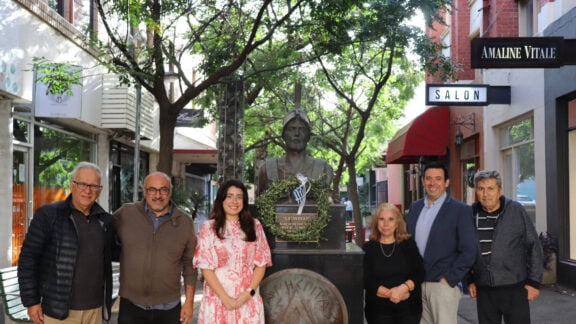February 9 marks a global celebration of Greek—a language that has profoundly influenced the modern world through its contributions to democracy, science, ethics, philosophy, humanism, and the arts.
For Greeks around the world International Greek Language Day is a momentous occasion to honour our heritage, recognising this invaluable treasure within us that serves as a key to unlocking a wealth of stories, traditions, and a profound understanding of our roots.
International Greek Language Day, established in 2017, coincides with the birth anniversary of Constantine Cavafy, one of Greece’s preeminent poets. Born in Alexandria, Egypt, in 1863 to Greek parents, Cavafy’s works are revered as some of the most influential in modern Greek literature.
The Greek language, steeped in a history spanning millennia, remains one of the world’s oldest and most illustrious tongues. Spoken by millions throughout the ages, it has shaped the thoughts and writings of countless luminaries in human history. As a cornerstone of Western civilization, Greek has permeated into the English language, with its words and concepts continuing to enrich discourse to this day.
Hellenes take great pride in being stewards of this rich legacy, passing down the remarkable Greek language to the generations that follow.
Learning Greek, especially at a young age enables children to forge meaningful connections with their grandparents, family lineage, and cultural heritage. The Greek language provides access to the vibrant tapestry of Greek culture, literature, music, and history, from the timeless epics of Homer to contemporary insights into life in Greece.
Research demonstrates that bilingualism enhances cognitive abilities such as memory, problem-solving, and critical thinking.
In a statement published today by the Embassy of Greece in Australia on X (formely Twitter), Deputy Foreign Minister Giorgos Kotsiras said:
“Greeks of the world, friends of Greece, dear compatriots,
With a heartbeat of thousands of years and remarkable resilience, the Greek language has been with humanity for centuries, and is found in writing continuously and uninterruptedly. As a result of this unique journey, an extraordinary vocabulary has been accumulated, capable of deciphering even the most thick and complicated meanings. The Greek language has nourished every science and many Western languages, and it exists within foreign vocabularies as part of a timeless cultural osmosis.
Following the phenomenon of linguistic evolution, Greek is renewing and is being renewed, enriching and being enriched, thus interpreting contemporary concepts and responding to new needs. Indeed, thanks to its unique descriptiveness, our language has the potential to serve as a compass, giving meaning to a complex world.
Dear friends, our era does not favour certainties. Reality moves around a continuum of small and large crises, prompting us to urgently seek mutual respect, justice, and harmonious coexistence. We seek the words that give substance to these concepts. And these words are Greek: Dialogue, Diplomacy, Democracy. Therefore, it is not without reason that, with these three Greek words beginning with the letter “D” and having a global meaning, our country claims its election as a non-permanent member of the United Nations Security Council for the 2025-2026 term.
Lastly, I would like to mention an additional Greek word beginning with the letter ‘D’ that has a global meaning: Diaspora. From ancient Greek to today, the word diaspora has remained almost unchanged, both in form and in meaning. Diaspora, the spreading of seeds, the journey of Hellenism’s values across the globe.
Diaspora, a precious “us” that extends to the end of the world and narrates its own history, always in Greek. Thank you.”









